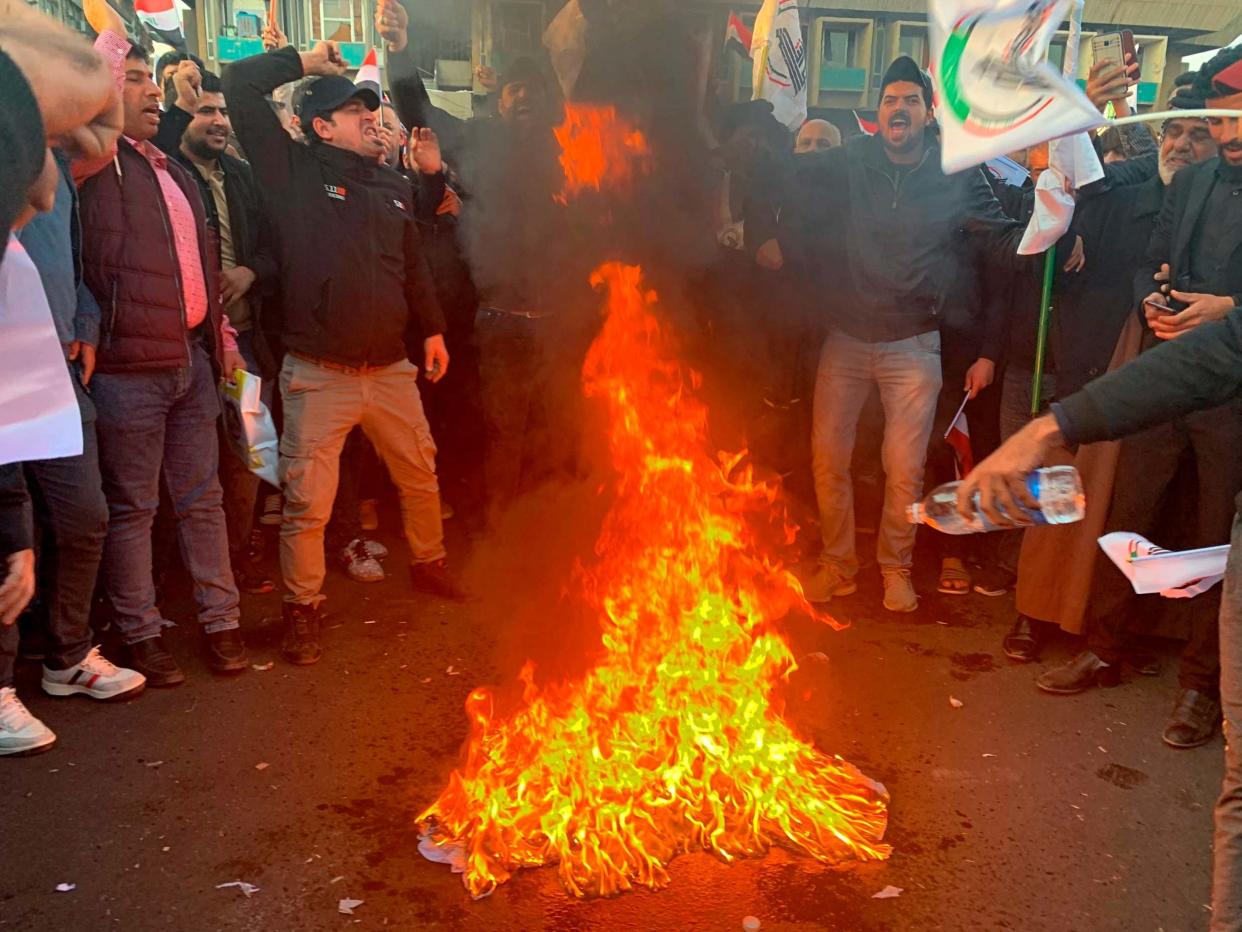Baghdad embassy attack: US ambassador and staff evacuated as Iraq protests erupt

US embassy staff and the US ambassador in Baghdad have been evacuated, according to two unnamed Iraqi Foreign Ministry officials cited by Reuters, as hundreds of Iraqi protesters swam the embassy compound.
Iraqi supporters of a powerful Iranian-backed militia were attacking the outside of the fortified zone that surrounds the US embassy compound in Baghdad, protesting against American air strikes that killed 25 fighters from the group, news agencies reported.
No US officials have confirmed the Reuters report that staff have been evacuated, but US officials have been jumpy about diplomatic security since a 1983 car bomb destroyed the US mission in Beirut and bombs struck US embassies in Kenya and Tanzania in 1998.
The protesters carrying coffins of the dead marched to the Green Zone after holding funerals for those killed in the airstrikes, reportedly attempting to storm the heavily guarded US facility. Al Jazeera television broadcast footage showing protesters attempting to break the windows of the embassy.
Security personnel were spotted retreating to the inside of the embassy as the protesters hurled water bottles and smashed security cameras outside the embassy, which measures some 420,000 square meters and is considered the largest and most expensive American diplomatic mission abroad.
The protesters also hung yellow flags belonging to the Kataib Hezbollah militia backed by Iran on the walls of the embassy. Others were carrying flags of the Popular Mobilisation Forces, a collection of volunteer armed groups that sprang up in 2014 to fight against Isis and have since grown to become part of the Iraqi security forces.
Some of the protesters began to set up a protest encampment, emulating anti-Iranian protesters who have been demonstrating against the current government in Baghdad for weeks,
US warplanes struck five facilities operated by the group in western Iraq and eastern Syria on Sunday two days after a barrage of missiles hit an Iraqi base, killing one US military contractor.
The exchange of fire has ratcheted up tensions between Iran and the US, with Iranian allies in Iraq vowing revenge. Senior Iraqi officials have also condemned the US airstrikes as a violation of the country’s sovereignty. In the wake of the airstrikes, Iraqi officials have called for re-examination of the US military presence in Iraq.
Among the 40 or so armed groups that make up the Popular Mobilisation, Kataib Hezbollah is widely considered very close to Iran, and is believed to have operational ties to the Quds Force, the clandestine overseas arm of the Iranian Revolutionary Guard which is overseen by Qassem Suleimani, an Iranian military commander.
While the US considers Kataib Hezbollah a terrorist group, it is viewed as a part of the security forces by some Iraqis.

